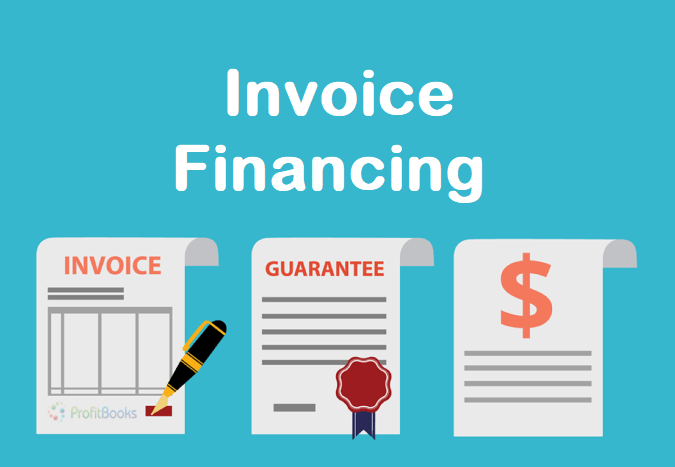Invoice financing is a financial solution that allows businesses to access immediate funds by using their outstanding invoices as collateral. This guide provides definitions, explains the importance of invoice financing, describes how it works, and discusses its advantages and disadvantages, concluding with key takeaways.
Definitions of Invoice Financing
- Factoring: Factoring, a form of invoice financing, involves selling your accounts receivable (invoices) to a factoring company at a discount. The factoring company then assumes the responsibility of collecting the payment from the customer. This provides the business with immediate cash while the factoring company earns a fee based on the invoice amount.
- Invoice Discounting: Invoice discounting is another type of invoice financing where a business borrows money against its outstanding invoices. Unlike factoring, the business retains responsibility for collecting payments from customers. The lender provides a loan based on the value of the invoices and holds a security interest in them.
- Selective Invoice Financing: Selective invoice financing, also known as spot factoring or selective factoring, allows businesses to choose specific invoices for financing rather than all outstanding invoices. This flexibility helps businesses manage cash flow on a case-by-case basis, optimizing their financing needs without committing to a large volume of receivables.
Importance of Invoice Financing
Invoice financing offers several key benefits for businesses:
- Improves Cash Flow: By converting unpaid invoices into immediate cash, invoice financing helps businesses maintain positive cash flow. This liquidity is crucial for managing day-to-day operations, paying suppliers, and covering unexpected expenses.
- Supports Growth: Access to funds through invoice financing can support business expansion and growth. Companies can use the cash to invest in new projects, increase inventory, or scale operations without waiting for customer payments.
- Provides Flexibility: Invoice financing offers businesses the flexibility to choose which invoices to finance, manage their funding needs on a selective basis, and adjust their financing strategy according to changing business conditions.
- Reduces Financial Pressure: By securing funds against invoices, businesses reduce the pressure of waiting for customer payments. This can enhance financial stability and enable more efficient management of working capital.
How Invoice Financing Works
Invoice financing typically involves the following steps:
- Application and Agreement: The business applies for invoice financing and enters into an agreement with a financing provider. The agreement outlines terms such as fees, advance rates, and the process for submitting invoices.
- Invoice Submission: The business submits its outstanding invoices to the financing provider. In the case of factoring, the provider takes over the collection process, while in invoice discounting, the business continues to handle collections.
- Advance Payment: Upon approval, the financing provider advances a percentage of the invoice value to the business. This advance is usually between 70-90% of the invoice amount, providing immediate cash flow.
- Customer Payment: For factoring, the customer pays the invoice amount directly to the financing provider. For invoice discounting, the customer pays the business, which then repays the loan to the financing provider.
- Final Settlement: Once the invoice is paid in full by the customer, the financing provider remits the remaining balance to the business, minus any fees or interest charges.
Advantages and Disadvantages of Invoice Financing
Advantages:
- Quick Access to Cash: Invoice financing provides rapid access to funds, helping businesses address immediate financial needs without waiting for the standard payment terms.
- No Collateral Required: Unlike traditional loans, invoice financing typically does not require additional collateral beyond the invoices themselves, making it more accessible for businesses with limited assets.
- Flexible Financing: Businesses can choose specific invoices for financing, offering greater control over their cash flow and allowing for selective use of available credit.
- Improved Cash Flow Management: By receiving advance payments on invoices, businesses can better manage their cash flow, reduce financial stress, and maintain smoother operations.
Disadvantages:
- Cost: Invoice financing can be expensive, with fees and interest rates that may reduce the overall value of the invoices. The cost of financing can impact profitability, particularly for businesses with tight margins.
- Dependence on Customers: The effectiveness of invoice financing depends on the reliability of customers in paying their invoices. Late or non-payment by customers can affect the financing arrangement and lead to additional costs or complications.
- Impact on Customer Relationships: In the case of factoring, the involvement of a third-party financing provider in the collection process may affect customer relationships and potentially impact the business’s reputation.
- Limited to Receivables: Invoice financing is only available for businesses with outstanding receivables. It may not be suitable for companies without significant invoice volume or those seeking alternative financing solutions.
Concluding Points
Invoice financing is a valuable financial tool that helps businesses access immediate cash flow by leveraging outstanding invoices. It plays a crucial role in managing cash flow, supporting business growth, and providing flexibility in financing.
However, businesses must carefully consider the costs associated with invoice financing and the potential impact on customer relationships. Effective management of invoice financing involves understanding the terms, assessing the costs, and selecting the right financing option based on specific needs and financial goals.
In conclusion, invoice financing can offer significant benefits for improving cash flow and supporting business operations, but it is essential to approach it with a clear understanding of its advantages and disadvantages. By making informed decisions and selecting a reputable financing provider, businesses can leverage invoice financing to enhance their financial stability and drive success.
